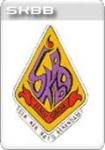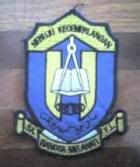Apple co-founder Steve Jobs, who revolutionized technology through
his design, marketing and creation of personal computers and mobile
devices, has died at 56, the company announced Wednesday (5 Oct). The man who forged Apple into a powerhouse and shaped how people
listen to music and how they use computers died peacefully surrounded by
his family. "We are deeply saddened to announce that Steve Jobs passed away today," Apple said in a brief statement. "Steve's brilliance, passion and energy were the source of countless
innovations that enrich and improve all of our lives. The world is
immeasurably better because of Steve." Noticeably fragile, he had stepped down from Apple in late August to
deal with the effects of an unspecified illness. Jobs had been treated
earlier for pancreatic cancer after first being diagnosed in 2004.
His storied career followed a remarkable series of twists and turns —
from a meteoric rise in the late 1970s and 1980s to a bleak nadir in
the 1990s followed by his ascent to the status of tech guru. Described by some as arrogant, temperamental and brutally honest
about employee performance, Jobs was known and respected for his
business acumen and an almost mystical ability to predict where tech
trends were headed and what people wanted. Tributes poured in from around the world, when news of Jobs's death was revealed. "Steve was among the greatest of American innovators — brave enough
to think differently, bold enough to believe he could change the world,
and talented enough to do it," said U.S. President Barack Obama. Bill Gates, Microsoft co-founder, said he had known Jobs for more than 30 years, as a friend and as a competitor. "The world rarely sees someone who has had the profound impact Steve
has had, the effects of which will be felt for many generations to come. For those of us lucky enough to get to work with him, it's been an
insanely great honour," said Gates. Marc Andreessen, founder of Netscape, said: "Steve was the best of the best. Like Mozart and Picasso, he may never be equalled."
Early life
Jobs
was born on Feb. 24, 1955, to Joanne Simpson and Abdulfattah Jandali,
an unwed couple who put their first-born son up for adoption. Raised by
Paul and Clara Jobs, Steven Paul Jobs grew up in California and
displayed a keen interest in electronics from an early age. In high school, he met a kindred spirit in Steve Wozniak, a man who
shared his passion for technology as well as practical jokes. The
friendship would play a key role in the development of Apple and the
career trajectory of Jobs. The two got their start in the tech world by selling so-called "Blue
Boxes," devices that gave users the ability to make free long-distance
calls. After graduating from Homestead High School in Cupertino, Calif.,
Jobs enrolled at Reed College in Oregon in 1972. He dropped out after
one semester, but remained in the area for another 18 months auditing
classes such as calligraphy. In 1974, he returned to California and began working at Atari, an
early video game company. He also went on a spiritual journey to India
with a friend, marking the start of his interest in Eastern philosophy
and religion, including Buddhism.
Beginning of Apple
In 1976, Wozniak and Jobs opened Apple
Computer Company. The tech giant's spectacular rise, fall and resurgence
would mirror Jobs's own life. The company's first model, Apple I, was a simple circuit board, which
was sold to computer enthusiasts. Its followup, however, turned out to
be a huge success, vaulting the company from a relative unknown into a
household name. Created in 1977, the Apple II was the first-ever
complete home computer, which came fully functional right out of the
box. It revolutionized the emerging industry. Many credit Apple, and also Jobs, with changing the perception of
what a computer can be — from a high-tech tool used only by the business
or science world to a commonplace device used by ordinary people. Apple and the economic fortune of its co-founder continued to grow.
After the company's initial public offering in 1980, Jobs was worth over
$200 million US. "We've lost something we won't get back," Wozniak said in an interview with The Associated Press following Jobs's death. "The way I see it, though, the way people love products he put so
much into creating means he brought a lot of life to the world."
[For more story: http://www.cbc.ca/news/canada/story/2011/10/05/apple-jobs-death.html]




















0 comments:
Post a Comment